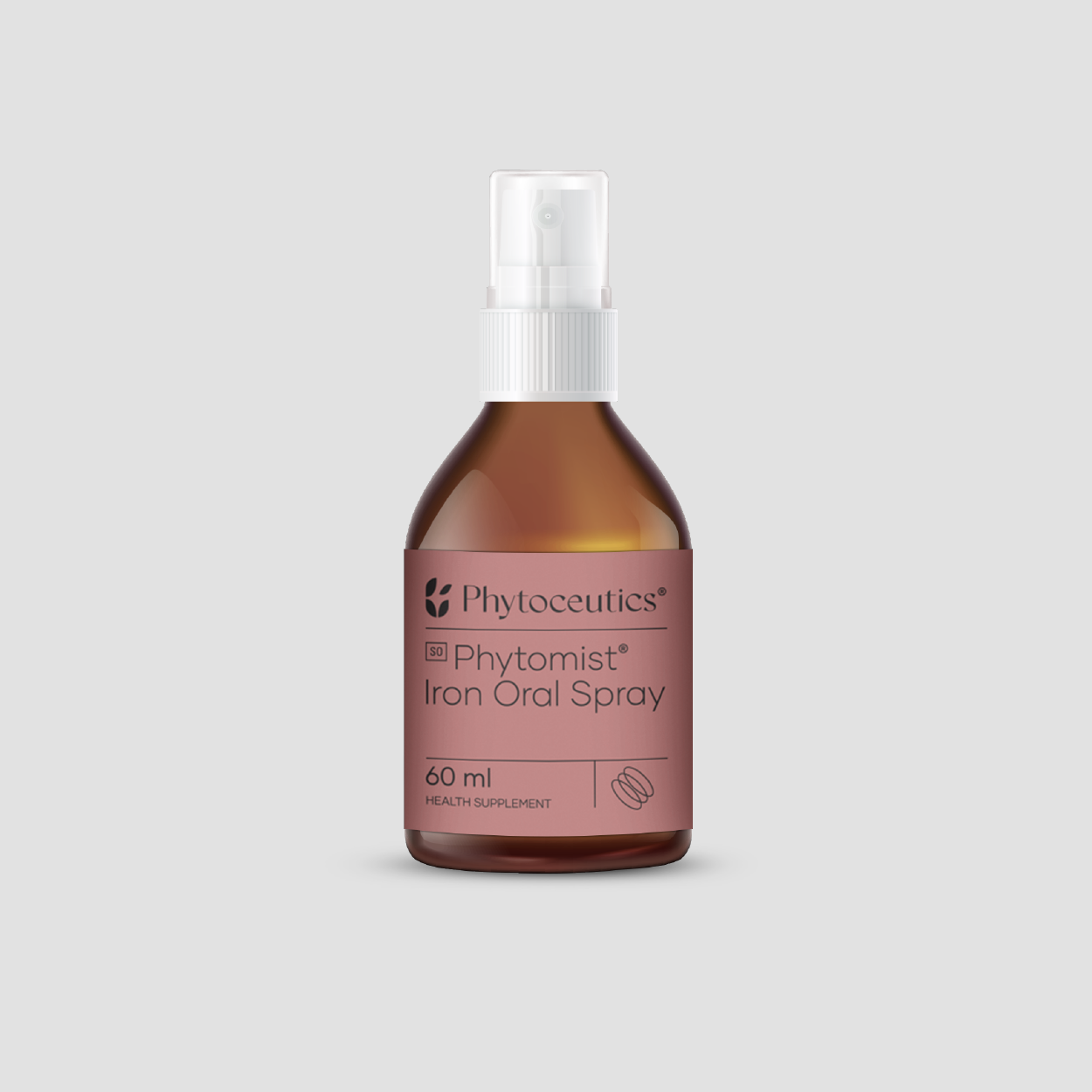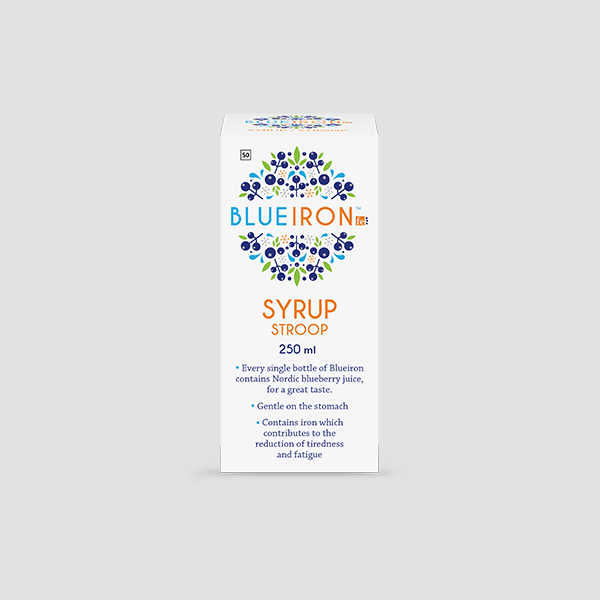Fatigue is a complex symptom with numerous possible causes, including lifestyle factors, medical conditions, and nutritional deficiencies. Among these, iron deficiency – both with and without anaemia – is frequently cited as a contributing factor. This has led to widespread use of iron supplements to combat fatigue. But how effective are iron supplements in reducing fatigue?
Understanding Iron’s Role in Fatigue
Iron is a vital mineral necessary for the production of haemoglobin, a protein in red blood cells that transports oxygen from the lungs to tissues throughout the body. Adequate oxygen delivery is essential for energy production at the cellular level, particularly in the mitochondria where ATP (adenosine triphosphate) is generated through aerobic metabolism (1,14). When iron levels are insufficient, oxygen transport capacity declines, leading to symptoms like tiredness, weakness, and reduced exercise tolerance.
However, iron’s influence on fatigue extends beyond haemoglobin and oxygen transport. Iron is also a cofactor in enzymes involved in mitochondrial electron transport and neurotransmitter synthesis, including dopamine and serotonin, which regulate mood, motivation, and cognitive function (2,3). Therefore, iron deficiency may contribute to fatigue through multiple biological pathways.
Iron Deficiency Without Anaemia: An Underrecognised Cause
Anaemia is a condition caused by not having enough healthy red blood cells or haemoglobin to carry oxygen to the body’s tissues. While anaemia is a well-known cause of fatigue, iron deficiency without anaemia (IDNA) is increasingly recognised as an important clinical entity. Individuals with IDNA have depleted iron stores but normal haemoglobin levels. Despite the absence of anaemia, these individuals often experience symptoms such as fatigue, decreased cognitive performance, and impaired physical function (4,15).
Several clinical trials have investigated whether iron supplementation can alleviate fatigue in people with IDNA. In a landmark randomised controlled trial, 144 non-anaemic women with low ferritin (<50 µg/L) received either oral iron or placebo for 12 weeks. The iron group showed a statistically significant improvement in fatigue scores compared to placebo, demonstrating that supplementation can reduce fatigue even without anaemia (5).
Similarly, a more recent study involving 198 menstruating women with IDNA reported that 12 weeks of oral iron supplementation resulted in significant improvements in fatigue compared to placebo (6). These studies highlight that iron supplementation benefits extend to those with iron depletion before anaemia develops.
Mechanistic Insights: How Does Low Iron Influence Psychological Health?
Beyond its role in oxygen delivery, iron is essential for brain function and energy metabolism. Iron deficiency affects neurotransmitter production in the brain, particularly dopamine, which plays a crucial role in motivation and alertness. A deficiency in dopamine synthesis can lead to symptoms resembling depression and fatigue. Some studies have shown a strong connection between iron deficiency and depression, even if anaemia isn’t present. In the past, researchers mostly looked for signs of depression in people with iron deficiency. But now, it’s becoming clear that we should also do the reverse: check iron levels in people who already have depression. (7).
A web-based survey examined 11 876 Japanese participants, and results show that self-reported history of iron-deficiency anaemia was associated with self-reported history of depression. Furthermore, self-reported history of iron-deficiency anaemia was associated with higher psychological distress (16). Additionally, iron-containing enzymes in mitochondria are critical for electron transport and ATP generation, so iron deficiency can impair cellular energy production as well (8).
The combined effects on physical energy and neurocognitive function explain why fatigue in iron deficiency is multifaceted, involving both physical tiredness and mental exhaustion.
Does Iron Supplementation Help with Exercise Performance?
Research suggests that iron supplementation can improve exercise performance, both during intense workouts and everyday physical activity. Taking iron can boost your VO₂ max, which is the body’s ability to utilise oxygen efficiently during exercise. This means individuals may have more stamina and feel less tired during workouts. Results from up to 20 different studies found a consistent improvement, showing that iron can make a real difference in how well one’s body performs and recovers (9).
In terms of submaximal performance (lower intensity), iron supplementation has been associated with a lower heart rate during exercise and a reduced percentage of VO₂ max required to complete specific workloads. These findings indicate enhanced aerobic efficiency and endurance. The benefits are particularly relevant for women of reproductive age, as daily iron supplementation has been shown to significantly improve aerobic capacity and energy metabolism, even in the absence of anaemia, supporting its role in the prevention and treatment of iron deficiency in this population (9).
A meta-analysis of 17 studies examining iron supplementation in iron-deficient non-anaemic endurance athletes found that iron treatment significantly improved several key markers of iron status and aerobic performance. Specifically, iron supplementation has been found to significantly increase key indicators of iron status, including serum ferritin, serum iron, and transferrin saturation. It also has a moderate positive effect on haemoglobin concentration and measures of aerobic performance. Overall, the findings suggest that iron supplementation is effective in improving both iron stores and aerobic capacity in endurance athletes, even in the absence of anaemia (10).
Effectiveness and Safety of Iron Supplementation
Regarding safety, oral iron supplements are generally well-tolerated but can cause gastrointestinal side effects such as nausea, constipation, and abdominal discomfort, which may affect adherence (11). Intravenous iron is reserved for individuals who cannot tolerate oral iron or have malabsorption issues (12).
Practical Recommendations
Healthcare providers should assess iron status with blood tests before recommending supplements for fatigue. Key tests include serum ferritin, haemoglobin, and transferrin saturation. Ferritin levels below 30 µg/L usually indicate depleted iron stores and potential benefit from supplementation (13).
For those with confirmed iron deficiency or IDNA, oral iron therapy is typically prescribed, with clinical improvement often noted within 4–6 weeks. Full replenishment of iron stores may take several months.
A Smarter Way to Supplement Iron
If you’re looking for a gentler, more convenient alternative to iron tablets, Phytomist® Iron Oral Spray is a smart choice. It delivers microencapsulated Iron Pyrophosphate (Lipofer®) via an easy-to-use oral spray, offering fast absorption without the stomach upset. With its strawberry flavour, vegan, sugar-free formula, and no metallic aftertaste, Phytomist® Iron Oral Spray is ideal for supporting iron deficiency, fatigue, anaemia, pregnancy, and more – all without the drawbacks of traditional supplements. It is also suitable for children 1 years and up.
Iron supplementation can be an effective strategy to combat fatigue – but primarily for those with confirmed iron deficiency, even in the absence of anaemia. When guided by proper diagnosis, targeted supplementation helps restore energy levels while minimising the risk of side effects. For individuals struggling with unexplained fatigue, identifying and addressing iron deficiency could be a key step toward feeling better.
This content is for informational purposes only and does not constitute medical advice. Always consult with your healthcare provider before starting any new supplement, especially if you are pregnant, nursing, have a medical condition, or are taking prescription or chronic medication.




